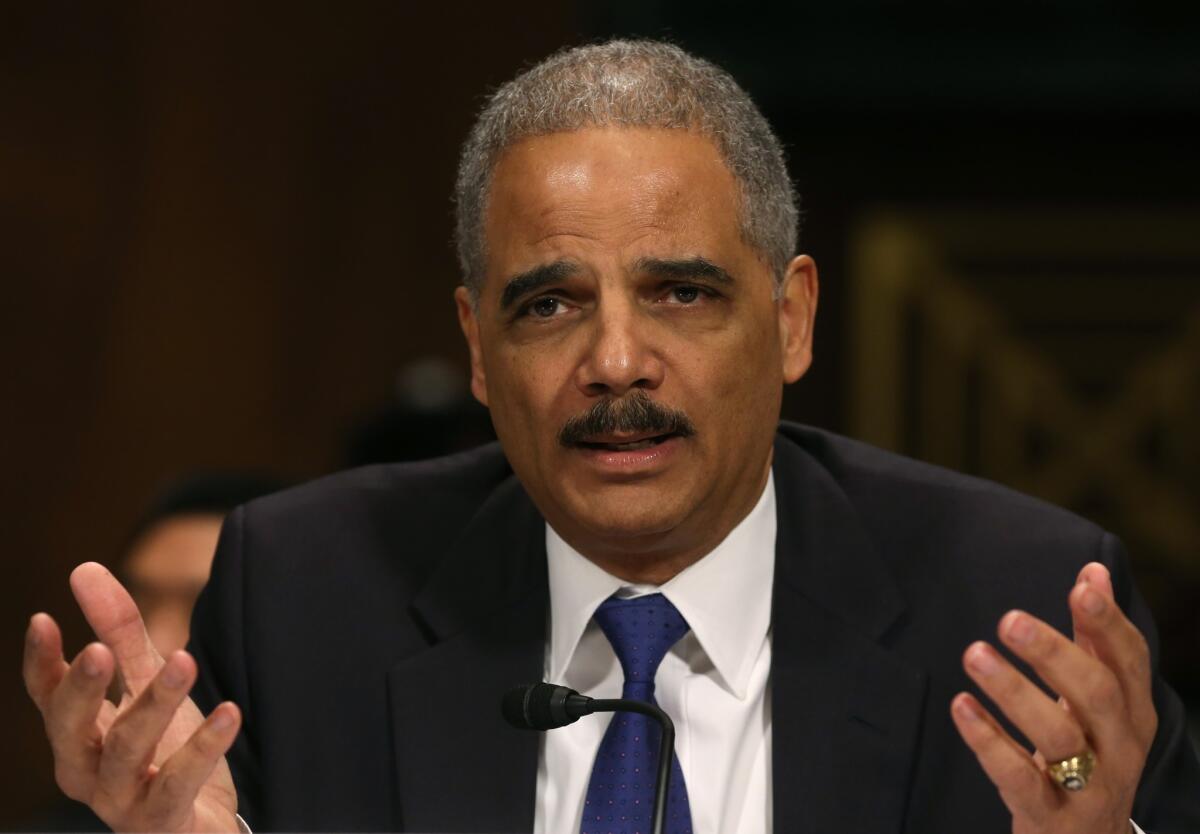Too many Americans are incarcerated for too long

Despite persistent polarization in Washington, a bipartisan consensus is emerging around the proposition that too many Americans are incarcerated for too long. Democrats tend to emphasize the injustice of excessive sentences that disproportionately affect racial minorities. Republicans are more likely to stress the cost of over-incarceration. But the common ground is real and significant.
Last week, by a vote of 13 to 5, the Senate Judiciary Committee approved the Smarter Sentencing Act, sponsored by Sens. Richard J. Durbin (D-Ill.), Patrick J. Leahy (D-Vt.) and Mike Lee (R-Utah). The bill would reduce mandatory minimum sentences for many nonviolent drug offenses and make retroactive a 2010 law reducing sentences for the possession of crack cocaine, a change that could benefit as many as 8,800 prisoners. The huge disparity between sentences for crack and powder cocaine had the effect of punishing black defendants more harshly than white ones. The legislation also instructs the U.S. Sentencing Commission to formulate its sentencing guidelines to âminimize the likelihood that the federal prison population will exceed the capacity of the federal prisons.â
Apparently as the price of Republican support for the larger bill, the committee also approved amendments that undermine the objective of reducing incarceration rates, including new mandatory minimum sentences for domestic violence and sex offenses. Mandatory minimums, regardless of the offense, are a bad idea. They undermine the Sentencing Commissionâs mandate and unnecessarily hamstring judicial discretion. But they are supported not only by members of Congress but by career federal prosecutors. The National Assn. of Assistant U.S. Attorneys has criticized Atty. Gen. Eric H. Holder Jr. for supporting legislation to modify mandatory minimums in drug cases.
Fortunately, Holder has made it clear that he recognizes that too many defendants are being sentenced to too much time in prison. He has undertaken a âSmart on Crimeâ initiative that, among other things, directs U.S. attorneys to refrain from charging low-level, nonviolent drug offenders with crimes that would lead to draconian mandatory minimum sentences. Holderâs deputy, James M. Cole, recently asked defense lawyers to identify long-serving prisoners who would be eligible for presidential clemency.
The United States is the world leader in incarceration. That is a dubious form of American exceptionalism that both parties in Washington â and in the 50 states â are finally beginning to rectify.
More to Read
A cure for the common opinion
Get thought-provoking perspectives with our weekly newsletter.
You may occasionally receive promotional content from the Los Angeles Times.










